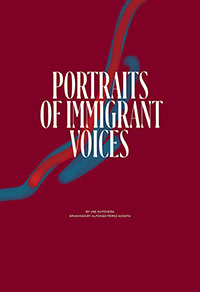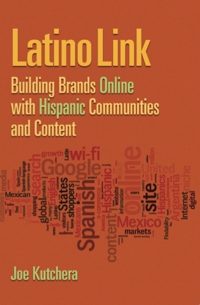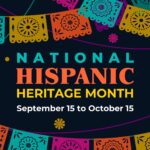This article originally appeared in the Fordham Business Review, which I wrote while doing an internship in Puerto Rico. Click here to read the second and third posts in this series.
In the century since July of 1898 when Puerto Rico became part of the United States, Puerto Rico has experienced incredible changes due to the influx of not only American tourists, but more importantly American business executives and entrepreneurs. They have provided a significant number of jobs to the island. Factories began providing modern jobs and training during the 1950’s when the United States Commonwealth made a major effort to industrialize. This has had a considerable impact upon how Puerto Ricans interact and communicate with Americans and other expatriates but also how Puerto Ricans communicate and do business with each other.
This article serves to educate the reader about communication and cultural issues that exist in the Puerto Rican business environment. The cultural roots in Taino indigenous people as well as Spanish culture have combined with the heavy influence from the United States in the past century to create a unique culture. By understanding these influences, business people can do business more effectively there as well as other Caribbean countries similar to Puerto Rico. In other words, Puerto Rico can serve as a paradigm or “gateway” for understanding other Caribbean countries from a U.S. perspective.
For this paper, I interviewed six business leaders and one communications professor from the University of Puerto Rico: two Americans, four Puerto Ricans, and one Guatemalan. Together they work for companies such as Coca-Cola, Johnson & Johnson, Warner Lambert (now part of Pfizer), Hewitt Associates (now part of AON), as well as other multi-national and Puerto Rican companies. All of these organizations have had a mix of Puerto Ricans, expatriate Americans and/or other foreign national employees.
We discussed a series of questions regarding the complexities of how Puerto Ricans and Americans work together in a multinational business environment and tried to determine:
1. How is the mix of English and Spanish handled in a professional environment?
2. How has contact with American business people and business culture impacted the Puerto Rican Spanish language, the working environment and ultimately Puerto Rican identity?
3. How does the rest of the world view Puerto Rico, as part of the United States, part of Latin America, or both?
4. How can the language and cultural problems raised be effectively managed?
Due to the immeasurable influence that the United States has had on the 111 mile by 33 mile island of Puerto Rico, a great discrepancy has arisen between how much Puerto Ricans know about the United States and how little Americans know about Puerto Rico. This, of course, changes the interaction and understanding between American and Puerto Rican business people. This problem begins with the language barrier and compounds with misunderstandings in culture.
The impact of the American style of doing business, which has been a global approach to business, has indelibly changed the business landscape of Puerto Rican culture. This has also changed how Puerto Ricans do business with Americans and other expatriates and how locals do business among themselves.
English vs. Spanish: Choosing Between Two Languages
The first potential roadblock to communications between Puerto Ricans, Americans, and other expatriates working together is language. The official language of Puerto Rico is Spanish, although many professionals speak English well. Companies assume their employees speak Spanish and English. Being bi-lingual is considered very desirable. Not speaking both languages can hinder career advancement, not only for Puerto Ricans but Americans and other expatriates as well.
Ruben Lugo López, the Human Resources Facilitator at Caribbean Refrescos, Inc. (Coca-Cola) and President of the Puerto Rican Chapter of Society for Human Resource Management (SHRM), says that in business meetings they speak English. But when everyone at the meeting speaks Spanish, then they switch over to using Spanish.
Debbie Wietzman emphasizes the need for English in training programs as the Director of Sales and Marketing for the professional division of Johnson & Johnson in Puerto Rico.
“We work towards hiring people that can speak English because most employees, at some point in their career, must travel to the United States for intense technical training that is only available in English. Our management in Latin America just created a new mandate, which was that all new hires have to be fluent in English. This is because training is so important. In Puerto Rico we would never hire someone if they weren’t bi-lingual.”
Warner-Lambert brought José Molina and his family from Guatemala to work as Human Resources Manager at their plant in Vega Baja, Puerto Rico. He notices the great differences between his Spanish and that of the Puerto Ricans.
“Puerto Ricans speak Spanish but with a lot of English influence, not only from a language perspective but from a cultural perspective as well. Our Spanish in Guatemala is very different. We make jokes about that because we don’t understand one another sometimes when we speak Spanish to one another. Sometimes the same word has different meanings.”
Even though American executives should learn Spanish, Puerto Ricans don’t always encourage them to do so. This is, in part, a function of being accustomed to meeting so many Americans that never bother to learn any Spanish, a fulfillment of the stereotype of the “ugly American.” Nevertheless, learning Spanish still allows expatriates to overcome great communication and cultural barriers. Wietzman says Puerto Ricans would oftentimes rather demonstrate their ability to speak English.
“I consider myself fully conversant in Spanish. Whenever I speak Spanish to a Puerto Rican, they immediately respond in English. When they hear you speak, they do a little assessment of whether they are better at English or you are better at Spanish. And then they usually make a decision based upon that. Anybody who’s halfway decent will reply in English and kind of force you to switch to English. People speak back to me in English when I think my Spanish is actually better than their English. But really, they want to show me that they can speak English.”
Dr. Lee Calm finds the same to be true since she moved Puerto Rico with her husband and children in 1966. She is the Practice Leader of Organizational Effectiveness at Hewitt Associates’ San Juan office.
“If I’m in a store and I talk to a saleswoman in Spanish and she answers me in English, I’ll probably laugh because she doesn’t hear me speak Spanish. She looks at my face and decides that I’ve spoken to her in English. She expects me to be speaking English and her mind has turned off. That’s happened lots of times.”
Anibal Ortiz finds that his fellow employees at Sun Alliance Insurance, a London-based international insurance company, resent using English. “They read English because they have to. Most of the work they perform they need to speak Spanish for because the common people speak Spanish. They resist speaking English but they have to handle it because it’s part of the work of the company.”
“We have a mix of Spanish and Taino Indian culture and also American culture. We are an American commonwealth. This year we celebrated the 100th anniversary. Puerto Ricans resist this because it’s not the language that they use everyday. The public school system only has one English class per year. It’s a strange situation because people understand English but don’t express themselves in English.”
Blending Languages: Spanglish and Code Switching
The strong influence of English can be seen in Puerto Rican “Spanglish” where English words are adapted for use in Spanish. “Code switching” describes when Puerto Ricans switch back and forth from one language to another in a single paragraph or sentence. Both of these are common speech patterns in Puerto Rico.
Molina says “When you work with Puerto Ricans, you speak Spanish. But when you refer to your work, there is a lot of English involved. This is a manufacturing operation so everything relates to the process, even when we are speaking Spanish we refer to the English words. For example, we don’t say “mezclador.” We say “blender” because it’s easier. We have a strong relationship with the United States because this is a domestic operation.”
Molina also hears code switching in his office. “Some people here speak Spanish but they were educated in U.S. universities, so even when they speak Spanish, they start speaking in English. They continue in English and that’s not something strange for them.”
Regarding code switching, Ortiz says, “I don’t like that. You can hear this with Nuyorican people. They are mixing sentences – half Spanish, half English. If I’m going to speak, I would prefer to speak Spanish. Less educated people resist Spanglish much less.”
Calem says, “I’m going to e-mailearte, or e-mail you. That’s Spanglish: e-mailear. If the speaker thinks that the listener doesn’t understand then they’ll switch. I have had conversations at Telefonica Larga Distancia when my client is speaking 100% Spanish and I’m speaking 100% English. In the middle of our conversations I burst out laughing. I can speak in Spanish but it’s so complicated and so tense that lots of times it’s just easier for me to say it in English because it comes out faster. And she understands everything that I’m saying. We’re just going along there in parallel languages. And I’m 100% in English and she’s 100% in Spanish.”
Mrs. Rodriguez, the Internal Communications and Training and Development Manager at the Puerto Rican Cement Company in San Juan, says, “That’s a problem that we have. I think it’s terrible and I do it all the time. It’s happening more and more. People speak English at home. They only watch cable TV [in English]. And they read the San Juan Star [the local English newspaper] and the Wall Street Journal. If you’re going to be part of that world, you have to be part of that world. You cannot walk into that world in the morning and walk out of it at night because then you will become a psychotic! Either you’re part of that world or you’re not.”
Rodriguez cites Spanglish and code switching as a solution to the psychosis. “The way we have learned to manage is to mingle both worlds at the same time through the language, through the culture, and in business. But it’s not something that the North American businessman understands. It’s a survival skill that we learn probably from the Nuyoricans because otherwise we would go crazy. Imagine having to go to work everyday, become one person during those 10 or 12 hours at work and then be another person home at night.”







